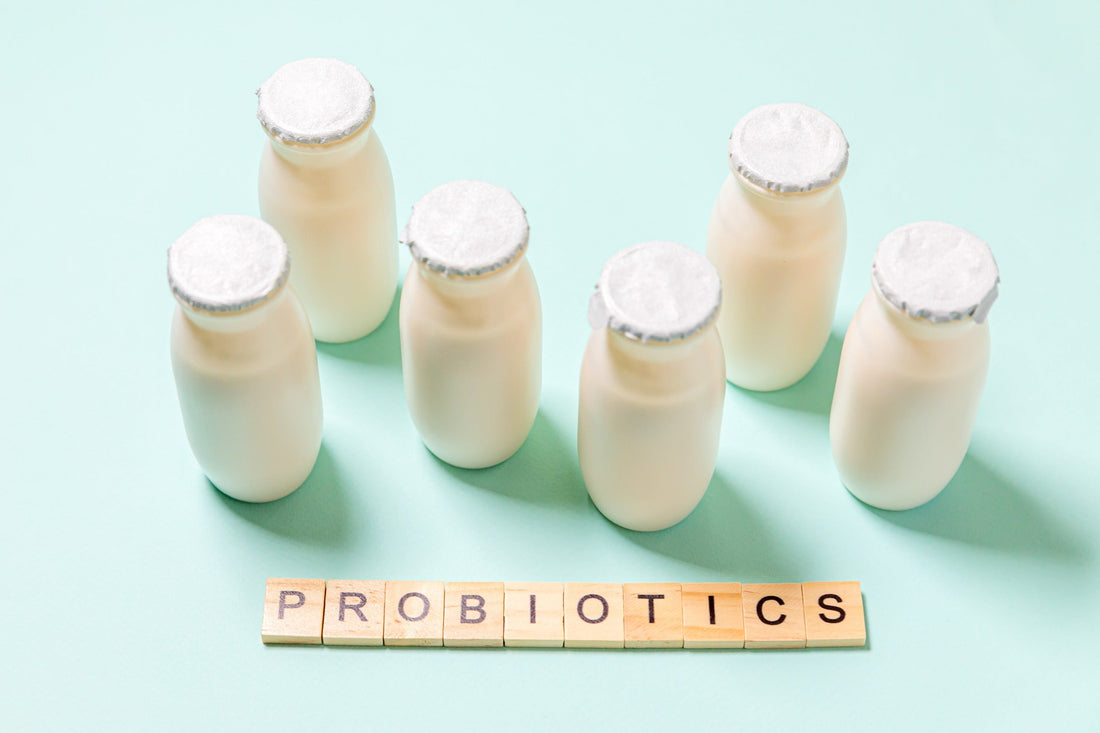Probiotics: What Are They and Why Are They Important?
| updated:Share

Your stomach and digestive system depend on a complex ecosystem of "good" and "bad" bacteria or flora. Probiotics represent the "good" live bacteria or yeast in your body, and the hope is that taking a probiotic supplement can help balance and stabilize the gut microbiome, supporting health and nutritional absorption.
As a parent, you want to do what's best for your little ones, which includes catering to their nutritional and health needs. A children's probiotic supplement, such as Wellements Organic Probiotic Drops, can do much more than support gut health. Discover the importance of "good" gut bacteria on your child's well-being.
What Are Probiotics?
Bacteria are often publicized as unfavorable, carrying a stigma of making people ill. Not all bacteria make people sick; probiotics contain bacteria and yeast that benefits the body, supporting essential biological functions and helping support a healthy gastrointestinal tract.
The bacteria found in reputable supplements can fight "bad" bacteria that make you sick and contain strains that naturally appear in your body. While everyone's microbiome is unique, each has microbes of fungi, bacteria, protozoa, and even viruses to benefit the body.

How Do They Work?
Probiotics, including the mouth, gut, urinary tract, lungs, etc., live throughout the body. While they populate various areas of the body, what do probiotics do?
The primary job of "good" bacteria is maintaining balance in the body's microbiome, keeping your body neutral. When neutral, your body is healthy, and you likely feel at your best. When harmful bacteria throw the balance out of whack, you become ill or experience infections.
Essentially, probiotics control inflammatory responses and support immune function. Depending on the strain of bacteria, probiotics can also:
- Help with digestion
- Produce vitamins
- Support digestive cells
- Absorb and breakdown medications
Benefits of Probiotics
While probiotics help balance your microbiome, they may also carry other benefits. To know the specific benefits of probiotics, more research is necessary. That said, research points to anecdotal evidence for many potential benefits of the supplements, including:
- Improved mental health
- Reduced instances of diarrhea
- Improved cardiac health
- Reduced allergies
- Reduced digestive disorder symptoms
- Improved immune response

Foods High in Probiotics
While supplements may help improve your gut microbiome health, making the right dietary decisions can also positively affect your systems. Many people don't realize that they already consume probiotic-rich foods in their diets.
When looking for foods to include in your diet, check the labels for "live and active cultures." To increase your probiotic intake, focus on fermented foods like:
- Yogurt
- Kombucha
- Sauerkraut
- Kimchi
- Fermented pickles
You can also include sourdough bread, cottage cheese, or miso soup to increase probiotic intake and establish well-rounded meals. Vary your dietary choice, too, to ensure the most nutritional benefit.
Should You Try Probiotics
The decision to try probiotics or not is yours. The supplements are generally safe, but research is too limited to provide definitive guidance.
Before you try a supplement, ensure the supplier is reputable. Supplements do not require the same rigorous testing and approval as prescription medications from the FDA. Look for supplements that undergo third-party testing and use clean, certified organic ingredients, such as all Wellements remedies.
Nothing is more important than your child's well-being and health. Probiotics may help balance the gut microbiome and provide mental health benefits, but research is still necessary. Talk to their pediatrician before you give your child any supplement or dietary remedy. Every child's microbiome is different, and the uniqueness of your little one's system may mean probiotics are not the best option for them. Still, a Wellements Multivitamin product is always encouraged.
Sources:
https://my.clevelandclinic.org/health/articles/14598-probiotics
https://www.healthline.com/nutrition/8-health-benefits-of-probiotics#weight-loss


